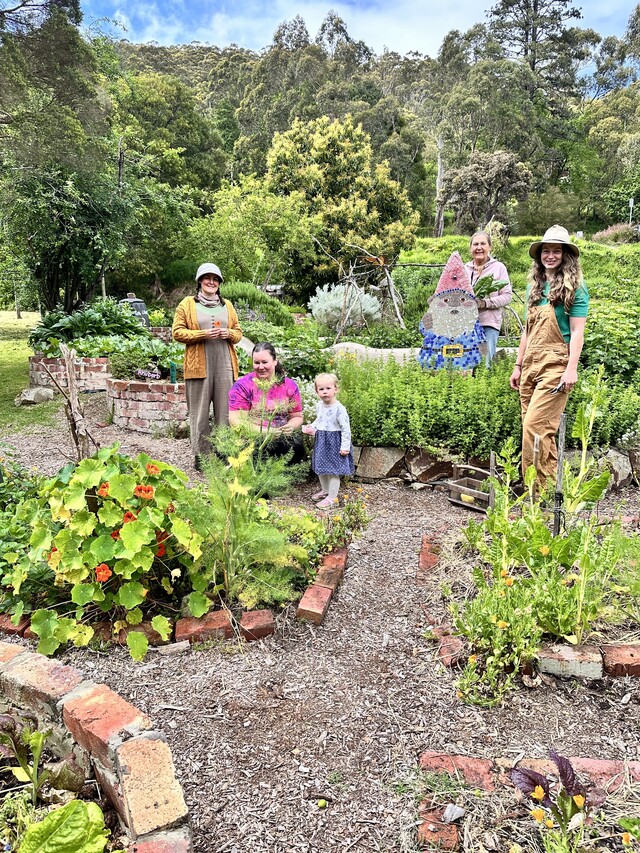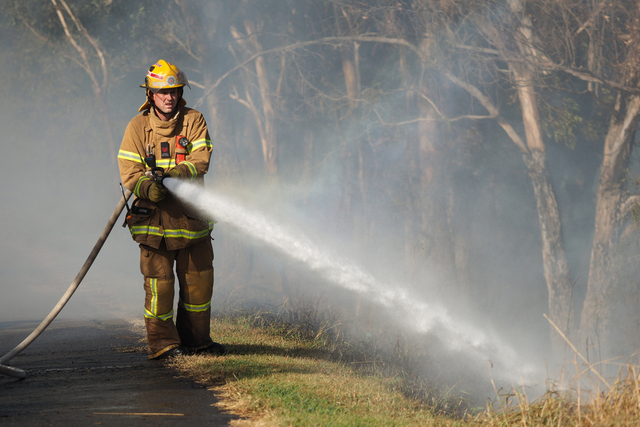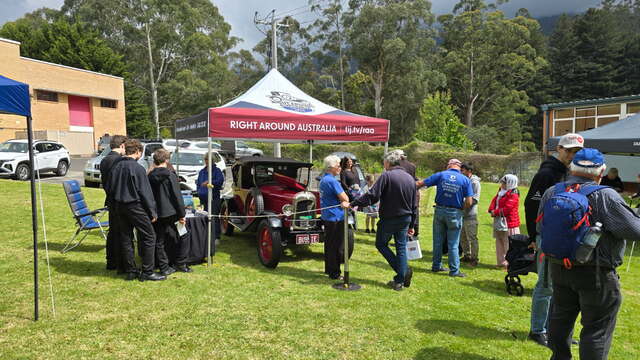By Kath Gannaway
YARRA Valley abuse survivor Jeannie Blackburn got a standing ovation when she spoke to police cadets on White Ribbon Day 2010.
“Because of the support I received from both my family and the police I am able to stand here today in front of a few hundred people and say ‘no more’,” she told the cadets at the Victorian Police Academy.
It was the first time she had spoken as a volunteer speaker with the Women’s Domestic Violence Crisis Service.
Ms Blackburn had spoken out in the Mail earlier in the year following the jailing of her former partner for a series of vicious bashings, the final attack leaving her blind in one eye.
Her story was a sickening account not only of the physical violence to which she was subjected, but of the emotional abuse and controlling behaviours she now recognises as indicators of the abuse she finally walked away from.
She delivered a powerful message to the young men and women who will be called on to put a stop to family violence. Many of those cadets will now be serving, often alongside seasoned officers, in police stations around Victoria.
The cadets had earlier heard then Deputy Police Commissioner Sir Ken Jones say police world-wide had traditionally got their approach to family violence very wrong.
That approach, that violence in the home was a matter between husband and wife, or partner and partner, led to a lot of homicides, a lot of misery and a lot of victimisation, he said.
He said family violence was now approached from a view of homicide reduction and that police could not just walk away.
“It is your job to do something about it,” he said.
Three police officers did something about the assaults on Ms. Blackburn.
Traralgon police officer Adam Lenders contacted Lilydale-based detectives Scott Poynder and Robyn Waite after a relative of Ms Blackburn’s told him of the assaults.
“He recognised that the violence was escalating and instigated the local police coming to my home to check on my welfare,” she said.
She said detectives had not only investigated but had provided her with the support, guidance and strength to see the investigation and court case through.
Her statement took three months to complete, and it was hard going.
“I was still in a state of denial, still trying to make excuses for my ex-partner. Some days Scott and I would only do half an hour of the statement and I would have to stop.”
Her experience of the police role can provide valuable insights not only for police cadets, but for every serving police officer.
She warned of the frustration police faced when victims went back to the abusive partner, or refused to give evidence when charges were laid.
She reported the abuse to police six times.
“I backed down believing that the man who professed to love me would seek help; would get better; would stop assaulting me,” she said.
She said studies showed a woman will try to leave up to seven times before making the final break and spoke of the many reasons a woman stayed in an abusive relationship.
“It is vital police know and understand the behaviours associated with both the abused and the abuser,” she said.
“Pro-active and supportive policing played a vital role in empowering me to go to police and follow through with charges.”
Daleen Spicer, Acting Inspector In Charge of the Centre For Law at the academy, said training around family violence was “very robust”.
“We have something like 40 squads here at the moment,” she told the Mail last week.
“Every recruit goes through the two weeks of training (on family violence) and there are practical assessments in relation to family violence, communication skills are taught and there are practical exercises; it’s a big part of the training which involves more than just the two weeks.”
Insp Spicer said the program was constantly monitored and fine tuned according to legislation and to ensure it was meeting community needs, and said in terms of serving officers, family violence was part of every step up the ranks.
“We also have family violence liaison officers who work in the stations and they’re expected to make sure information gets out,” she said.
“We don’t see older police set in any particular style, or any intrinsic cultural issues in (long-serving members) dealing with family violence. It’s a big part of our job and members are expected to deal with it,” Insp Spicer said.
Breaking the cycle
Digital Editions
-

Edible Warburton reach out for members
With the spring and summer months bringing on faster growth, Edible Warburton are calling out for support to keep the garden looking good. The group…





